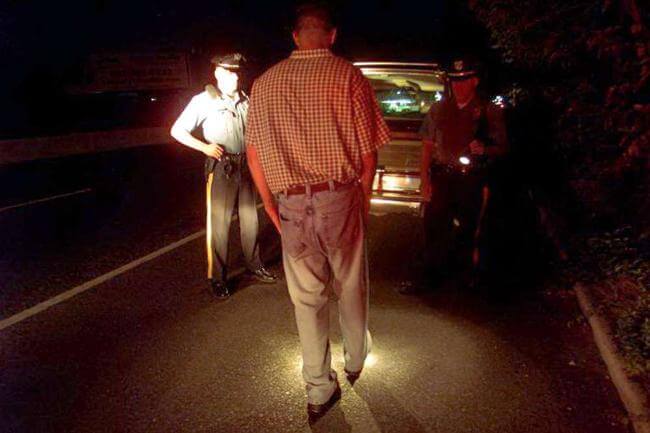DWI Legislation Would Replace Drunken Driving Suspensions with Ignition Locks
Most convicted drunken drivers in New Jersey could avoid mandatory license suspensions under a new bill making its way through the Legislature — a proposal that constitutes a major shift in how the state deals with the offense.
The bill would require all drivers convicted of DWI to install an ignition interlock device on their cars that would prevent them from starting the engine unless they are sober. More than 35,000 drivers are convicted of DWI in New Jersey every year, including more than 3,200 in Bergen County and more than 1,500 in Passaic County, according to state court figures.
But the proposal to eliminate license suspensions — a sanction which has long been a fixture in the state’s drunken-driving laws — has provoked debate among lawmakers, anti-drunken driving advocates and defense attorneys. Among the bill’s staunch supporters is Mothers Against Drunk Driving, or MADD, which said the bill is its top legislative priority in New Jersey.
“Taking away the license of a driver is not the best approach,” said Frank Harris, state legislative affairs director for MADD. “This is about a change in behavior and saving lives. It’s more of an effective approach to stopping drunk driving.”
The bill’s opponents, however, say that it would eliminate the strongest deterrence to drunken driving: The loss of one’s driver’s license and possibly one’s job.
“I think it’s a terrible bill that needs to be reworked,” said Robert Ramsey, an attorney who has handled thousands of drunken-driving cases over several decades. “It’s unfair and impractical and won’t accomplish the goals that everyone hopes it will.”
New Jersey’s drunken-driving law imposes a mandatory license suspension for a minimum of three to seven months for a first-time offender, depending on the driver’s blood-alcohol level. The suspension extends for up to 10 years for repeat offenders.
The law does require all second- and third-time offenders to install an ignition interlock device. It also requires first-time offenders to install the device if their blood-alcohol level was 0.15 percent or greater. It does not require installation of the device for drivers with a blood-alcohol level between 0.08 percent, which is the legal limit, and 0.15 percent.
The new bill would require all drunken drivers, including convicted first-timers, to install the device. But it eliminates the mandatory license suspension for first-time and second-time offenders. Instead, it suspends their licenses for 10 days during which they are expected to install the ignition interlock device on their cars. Not doing so becomes an added offense.
“It’s a change in philosophy from punishment to prevention,” said Assemblyman Ralph Caputo, D-Essex, one of the co-sponsors of the bill.
Harris, the MADD legislative affairs director, said many states already allow convicted drunken drivers to drive with a conditional license so they can continue to work or go to school. The new bill would allow convicted drivers to go on with their lives while requiring them to prove their sobriety every time they get into a car, he said.
“This legislation moves New Jersey forward in comparison to what other states are doing,” he said.
Harris also said a license suspension has not been an effective deterrence because as many as 75 percent of drunken drivers keep driving even after their licenses have been suspended.
Paul Brickfield, a River Edge attorney who handles drunken-driving cases, agreed. New Jersey has been lagging behind states such as New York, which offers conditional driver’s licenses to drunken drivers so they can drive only for the purpose of going to work or school.
He said license suspensions are not the only deterrent. Having an ignition interlock device on one’s car is a social embarrassment that most people would rather avoid, he said.
Brickfield also said a DWI conviction comes with thousands of dollars in fines and surcharges, skyrocketing car insurance premiums and a social disapproval of drunken driving. Those are sufficient deterrents to the typical DWI defendant, who he said can often be a person who is not an alcoholic, but could have had too much to drink one night.
Ramsey, however, said one of the biggest defects of the bill is that it completely overlooks drivers who may have been intoxicated by something other than alcohol. The ignition interlock device only detects alcohol and cannot stop a driver from starting a car if the driver is intoxicated by narcotics, prescription drugs or hallucinogens, he said.
He also said the law does not distinguish between mostly responsible drivers who commit an aberration and are hardly a threat to society, and reckless drivers who frequently get behind the wheel while drunk and are a menace to society.
Gerald Salerno, a Hackensack attorney and president of the Bergen County Bar Association, said it is a good idea for the law to try to be flexible for some first offenders. He said a judge would be in the best position to assess the background of each convicted drunken driver and determine whether a license suspension is warranted.
The bill, however, does not give discretion to a judge, he said.
“It would seem to me that it would make more sense if the judges are given discretion to make a case-by-case determination,” Salerno said.
David Martinez, spokesman for Bergen County Sheriff Michael Saudino, said the bill is “a step in the right direction,” and that the mandatory installation of ignition interlock devices would reduce alcohol-related deaths and injuries.
He said his only concerns are how the bill can deal with drivers who are intoxicated by substances other than alcohol, and how the law can prevent convicted drunken drivers from renting vehicles without ignition interlock devices. Martinez said he expects the Legislature to address those issues before the bill becomes law.
The bill, which was introduced last year, was approved with a 7-0 vote by the Assembly Judiciary Committee on Dec. 16. It has since been referred to the Assembly Appropriations Committee.

